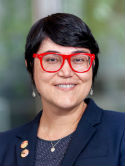| Abstract: |
Importance: Women outnumber men in US medical school enrollment, but they represent less than 40% of academic oncology faculty. Objective: To identify the key factors associated with female oncologists' decision to pursue academic or nonacademic oncology practice and to characterize their perceptions about their current career. Design, Setting, and Participants: This cross-sectional survey study was distributed through email and social media to female physicians in academic and nonacademic oncology practice in the United States. The survey was open for 3 months, from August 1 to October 31, 2020. Main Outcomes and Measures: No single primary study outcome was established because of the cross-sectional nature of the survey. Data were collected anonymously and analyzed using t tests for continuous variables and χ2tests for categorical variables. Results: Among the 667 female respondents, 422 (63.2%) identified as academic oncologists and 245 (36.8%) identified as nonacademic oncologists. Approximately 25% of respondents reported that their spouse or partner (156 [23.5%]) and/or family (176 [26.4%]) extremely or moderately affected their decision to pursue academic practice. Academic oncologists perceived the biggest sacrifice of pursuing academics to be time with loved ones (181 [42.9%]). Nonacademic oncologists perceived the biggest sacrifice of pursuing academics to be pressure for academic promotion (102 [41.6%]). Respondents had different perceptions of how their gender affected their ability to obtain a chosen job, with 116 academic oncologists (27.6%) and 101 nonacademic oncologists (41.2%) reporting a positive or somewhat positive impact (P =.001). More than half of the women surveyed (54.6% academic oncologists [230]; 50.6% nonacademic oncologists [123]; P =.61) believed they were less likely to be promoted compared with male colleagues. Academic and nonacademic oncologists reported rarely or never having a sense of belonging in their work environment (33 [7.9%] and 5 [2.0%]; P <.001). Most respondents reported that they would choose the same career path again (301 academic oncologists [71.3%]; 168 nonacademic oncologists [68.6%]); however, 92 academic oncologists (21.9%) reported they were likely to pursue a career outside of academic oncology in the next 5 years. Conclusions and Relevance: This survey study found that a spouse or partner and/or family were factors in the career choice of both academic and nonacademic oncologists and that female gender was largely perceived to adversely affect job promotion. Given that more than 20% of female academic oncologists were considering leaving academia, gender inequality is at high risk of continuing if the culture is not addressed. © 2021 American Medical Association. All rights reserved. |




